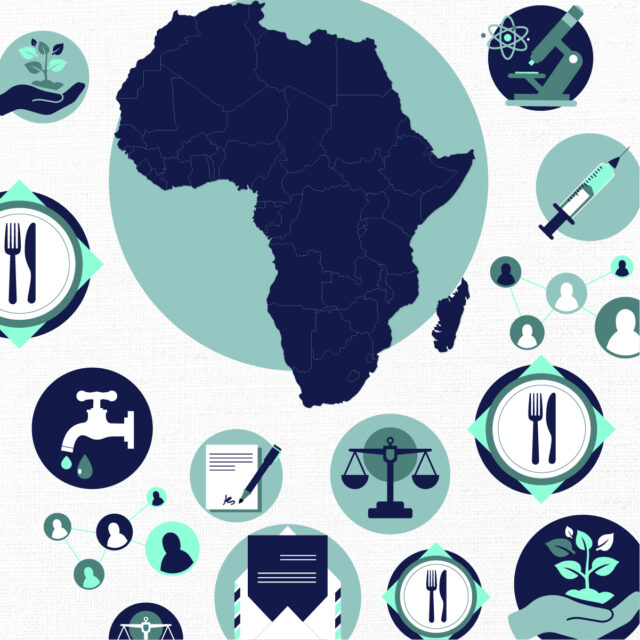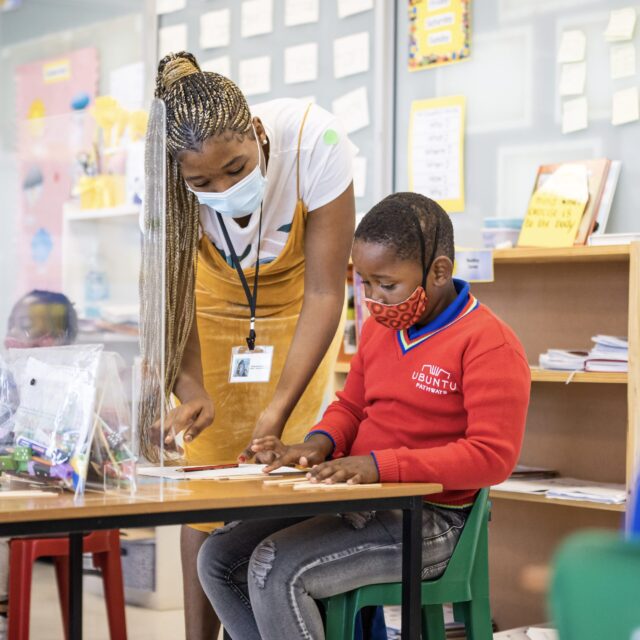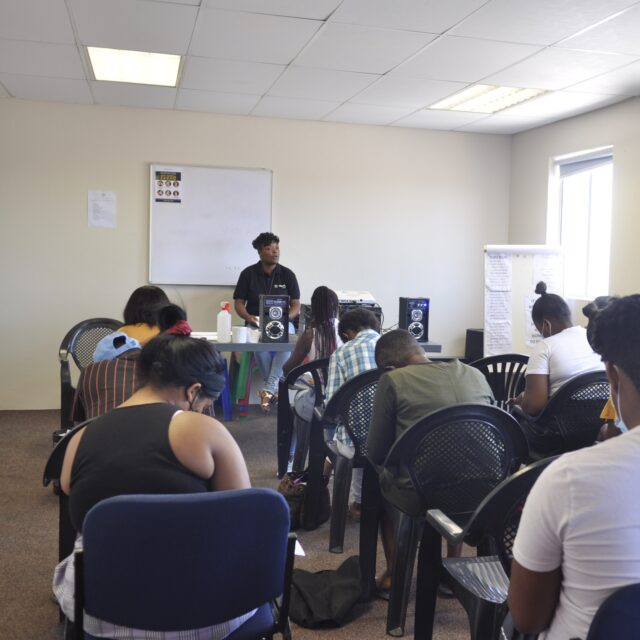Top news
100,000 African health workers: have been infected with COVID as of this week, citing a lack of PPE and over-work. A year into the pandemic, cases on the continent are about to hit 4 million, according to WHO Africa. Test positivity is greater than 10% in Ghana, Lesotho, Mozambique, Namibia, and Zambia with a 3% increase across the continent.
Relief! This week US President Joe Biden will sign into law an historic $1.9 trillion COVID-19 relief bill. The OECD predicts the bill will reverberate well beyond America’s borders, adding a full percentage point to world economic output. But the bill also includes $11.55 billion in international funding.
The skinny: $11.55 billion is a big deal; almost equal to France’s total aid spending last year. $8.6 billion will go to health programmes, including $3.75 billion for COVID and HIV prevention, treatment, and control; $3 billion for disaster relief; $930 million for economic and stabilisation resulting from COVID, $750 million to the Global CDC for health security, and $800 million to food security.
America’s back: This new investment, on top of a $4 billion commitment to Gavi and $2.8 billion from previous emergency bills, America has committed $18.4 billion to the international response from its own budget. But the best could be yet to come next month if the US fully gets behind the creation of $650 billion worth of Special Drawing Rights at the IMF following Secretary Yellen’s show of support last month. Initially, the majority of these will go to richer countries, but if G20 countries transfer just 15% of their allocations to Africa this year, it would fulfil African finance ministers’ call for a $100 billion stimulus package.
But wait: President Biden said exactly the right thing on vaccine equity. But just hours before doing so he approved the purchase of 100 million J&J doses, bringing the US surplus doses to 550 million. J&J vaccines are most suitable for low-income countries because it’s a one dose regime that doesn’t require specialist cold chain facilities.
Solidarité: World leaders could do well to follow Senegal’s example. Last month, despite a meagre supply of vaccines, they shared 10% with neighbouring countries Gambia and Guinea-Bissau. France has committed to share 500,000 doses with low-income countries. In contrast, the US and UK — with much greater supplies — have opted to wait until all of their populations are vaccinated. Sounds reasonable until you realise that American frat boys will get the double dose before Angolan ICU nurses and Ghanaian grandmothers.
Not the only epidemic: New polling from Afrobarometer shows chronic mistrust in governments when it comes to the vaccine rollout. 79% of Senegalese respondents said they were unlikely to get vaccinated. Over half the population in Niger, Liberia, Togo, and Benin said they didn’t trust the government to ensure vaccines were safe. The Africa Infodemic Response Alliance aims to get ahead of this problem. In Rwanda, Pfizer vaccines are being given in the left arm and AstraZeneca in the right to track potential side effects. President Paul Kagame was vaccinated on Thursday.
Broken ratings: This week Moody’s upgraded Benin’s credit rating despite ongoing governance challenges. Last month Fitch downgraded Ethiopia after it requested debt restructuring through the G20’s Common Framework and indicated it would treat other countries the same way.
In denial: Tanzanian President John Magufuli has been reportedly hospitalized with COVID. He previously denied the existence of the disease, ordered herbal remedies, and refused to update COVID case numbers since April 2020. The country has already lost a number of ministers and senior officials to the disease.
Presidents and rock-stars: Ngozi Okonjo-Iweala, Ellen Johnson Sirleaf, Mary Robinson, Donald Kaberuka, Aliko Dangote, Mo Ibrahim, and Bono are among the signatories to a major new statement calling for the EU and Africa to partner on vaccine equity.
Food security: On the menu at the United Nations Security Council this week was a discussion of hunger as famine looms in Yemen, and food security threatens stability in other regions. Meanwhile there are reports that the UK will cut humanitarian aid by up to more than 60% in DRC, Libya, and South Sudan and up to 90% in the Sahel. ONE’s food security data viz shows the scale of the problem and we have more on the situation in Uganda.
Track and trace: Young Nigerians are tracking COVID funds to fight corruption using procurement data that ONE campaigned to be released back in 2016. The UK returned £4.2 million in stolen assets to Nigeria to be spent on the Lagos to Ibadan Expressway, the Abuja to Kano road and the second Niger Bridge.
Progress stalled: An additional 10 million girls could be married as children as a result of COVID. UNICEF says Nigeria and Ethiopia are among the five countries with the highest prevalence child marriage. Progress has slowed significantly in West and Central Africa, with girls in the poorest segments of society hardest hit.
Read our readers: Our partners at Bloomberg surveyed the media landscape in Africa late last year. 46% of respondents thought the health of the sector had deteriorated in 2020. 77% thought misinformation was a serious problem. The Mo Ibrahim Foundation awarded President Mahamadou Issoufou of Niger the 2020 Ibrahim Prize for Achievement in African Leadership.
The numbers
-
- 43% of the stories run in African media emanate from western media agencies.
- 79% of Senegalese respondents said they were unlikely to get vaccinated.
- $3.1 trillion: external debt owed by 120 low- and middle-income countries.
More reads
- A Moral Failure in Pandemic Response: W. Gyude Moore pulls no punches in laying out the myriad ways in which the international community has failed the solidarity test. He invokes US President George Bush to call for a real war-footing against our common enemy: COVID.
- The Economist Intelligence Unit’s Global Food Security Index ranks countries on the quality, availability, affordability, and resilience. After Yemen, Sudan, Zambia, Malawi, Sierra Leone, and Ethiopia sit at the bottom of the table.
- A prestigious economic commission led by Nobel Laureates Joe Stiglitz and Michael Spence published a new report calling for vaccine equity, SDRs, and debt relief.



